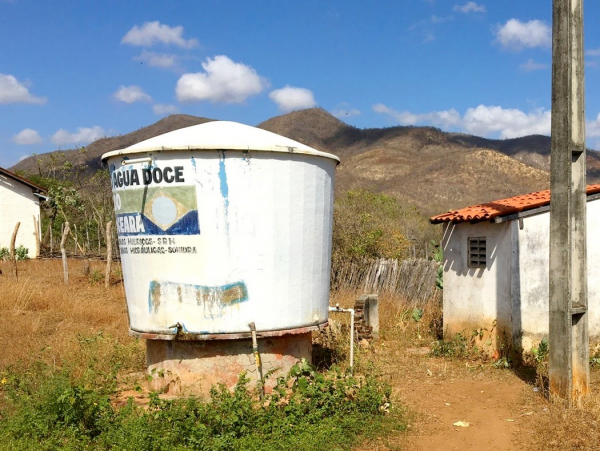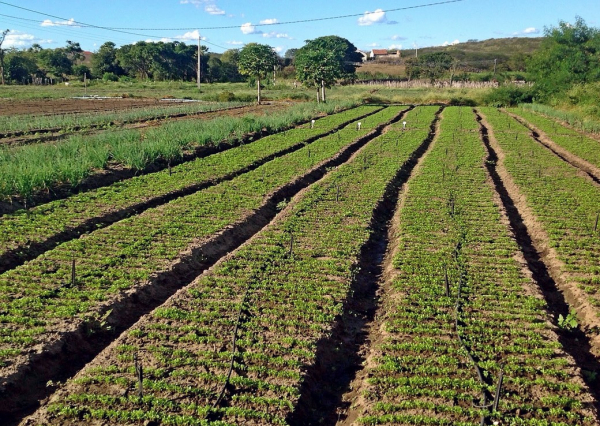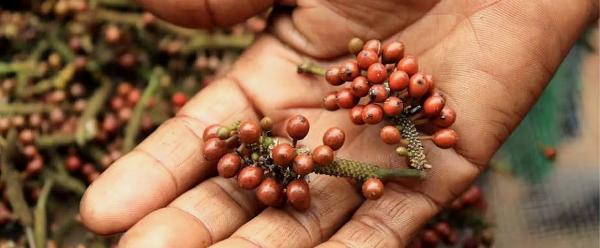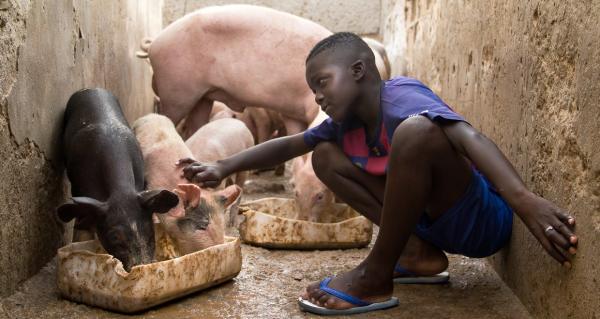Science at work 4 March 2024
- Home
- CIRAD news
- News
- Brazilian Nordeste reaction to climate change
The Brazilian Nordeste: towards development pathways resilient to climate change
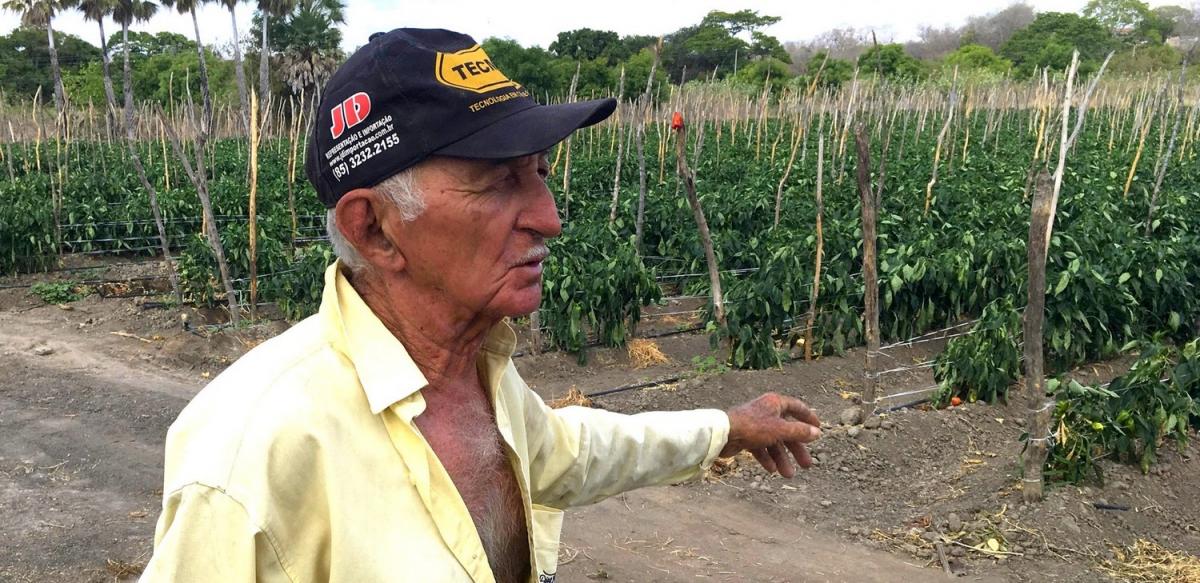
A farmer in Ceará, Brazil, shows his crops grown with drip irrigation © J. Burte, CIRAD
The Nordeste is the most impoverished region in Brazil and the most sensitive to climate change. In Ceará state, even a marked rainy season like the one in 2019 is not enough to boost production or water supplies. It is in this semi-arid zone that an action research project coordinated by CIRAD, Sertões*, has just been launched. Its strength lies in the fact that local policymakers will be heavily involved in its operations.
The fruit of a 20-year partnership
Sertões has financial support from AFD and is headed by CIRAD, in close partnership with the Meteorology and Water Resource Center of Ceará State (FUNCEME), over three years.
For FUNCEME President Eduardo Martins, "the project is the fruit of an intense debate and a partnership with CIRAD over almost 20 years. We must now make a paradigm shift in terms of public action, from a sector-based vision to territory-based approaches that encompass the water, agricultural and energy sectors. I am grateful to CIRAD for its support in this joint research debate aimed at building sustainable development pathways.
An ambitious consultation programme…
CIRAD scientists will be coordinating a wide-ranging consultation programme involving many players, from farmers to governors. The consultation will cover interlinked topics such as watersheds, hydrological systems and agricultural production. These exchanges of viewpoints on land and resource use have a dual objective: to pinpoint levers for the agroecological transition and to co-construct new local modes of governance for both water supplies and rural zones.
… to three ends
- Analysing the impacts of climate change and the effects of public policy on the water/agriculture/energy nexus
- Identifying agricultural development pathways that involve practices that emit less carbon, to pave the way for the agroecological transition
- Building the capacity of institutions in the water sector to develop such inclusive development instruments and pathways.
Diagnoses, foresight exercises and pilot operations
The Sertões project will comprise three phases:
- Past/present diagnoses: hydro-climatic and agricultural changes; public policy and associated instruments and incentive operations; player and stakeholder networks.
- Foresight exercises, scripting of scenarios and analyses of resilient pathways that reduce the footprint of the carbon/water/energy nexus.
- Pilots of water governance and territorial information systems geared towards sustainable development.
The project is backed by a strong structure aimed at building skills among water sector staff in Ceará. A monitoring-assessment system will support decision-making in terms of drafting public policy and investment programmes in the region, to foster low-carbon, resilient operations.
The result of this collaboration will be presented by AFD on the 2050 Pathways Platform. This multi-partite initiative was launched at COP22 to support countries seeking to build long-term carbon-neutral pathways resilient to climate change and compatible with sustainable development.
* SustentabilidadE e Resiliência hídrica e Territorial nos sertÕES nordestinos - Water and territorial sustainability and resilience in the Sertões of Nordeste.

























